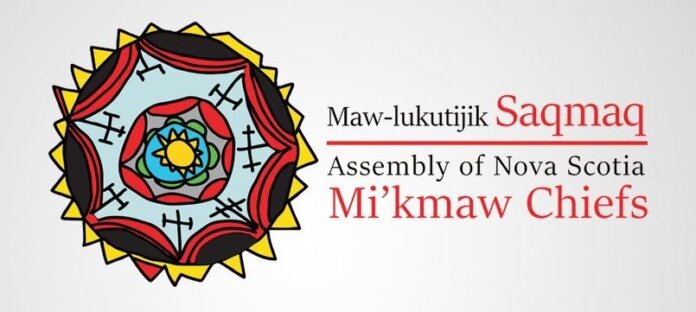In the heart of Nova Scotia, an organization stands at the center of one of the most important conversations in Canadian history – the protection, recognition, and implementation of Mi’kmaw Rights. Its name is Kwilmu’kw Maw-klusuaqn (KMK), which translates to “we are seeking consensus.”
True to its name, KMK has become a bridge between the Mi’kmaw Nation and federal and provincial governments, while working to ensure that future generations of Mi’kmaq can live in harmony with their lands, waters, and traditions.
Crystal Dorey, KMK’s director of communication, advised the seeds of the organization were planted in the 1990s, when Mi’kmaw leadership grew determined to take control of their own path forward.
“Despite wins in the courtroom, Mi’kmaw leadership decided that the government or courts should not be deciding how the Mi’kmaq would implement their rights.”
In 1998, the Nova Scotia Mi’kmaw Chiefs – now known as the Assembly of Nova Scotia Mi’kmaw Chiefs – began building a process that would be different from anything else in Canada – one focused on practical, respectful, and meaningful ways to exercise inherent rights.
That vision became reality in 2002 with an Umbrella Agreement between the Mi’kmaq, provincial and federal governments.
The following years saw the hiring of negotiators, the creation of a Framework Agreement, and, by 2004, the establishment of KMK itself. The Made-In-Nova Scotia Process, signed in 2007, and the Mi’kmaq-Nova Scotia-Canada Consultation Process, ratified in 2010, cemented KMK’s role as both advocate and negotiator on behalf of 11 of Nova Scotia’s 13 Mi’kmaw communities.
Today, KMK is also the administrative arm for the Maw-lukutijik Saqmaq – the Assembly of Nova Scotia Mi’kmaw Chiefs.
KMK operates through two key departments: consultation and rights implementation. Together, they address immediate issues while building long-term solutions, always with one clear mission – to protect Mi’kmaw and Aboriginal Rights and Title.
This mission is reflected in a wide range of projects that touch nearly every part of Mi’kmaw life.
For example, through an Interim Arrangement with Parks Canada, the Mi’kmaq now have free access to all National Parks and Historic Sites in Nova Scotia. As part of this initiative, a Mi’kmaw Advisory Committee was established to provide input on park planning and operations, laying the foundation for future co-management and co-governance.
In the area of fisheries, KMK played a pivotal role in supporting Potlotek First Nation as it launched its livelihood fishery in 2020. This landmark achievement has since expanded into the Treaty Rights Protected (TRP) fishery, which has allowed more communities to exercise their moderate livelihood rights in line with court-affirmed treaties.
KMK has also made significant contributions to archaeology by working with the Assembly to develop the Mi’kmaw Archaeological Protocols and the Ancestral Remains Protocols. These frameworks ensure that archaeological work conducted in Nova Scotia respects Mi’kmaw heritage, knowledge, and ancestral remains.
In terms of environmental stewardship, KMK has become a leader in protecting Mi’kmaw Rights while advancing sustainability. The organization established standards for Mi’kmaq Ecological Knowledge (MEK) studies to assess the potential impacts of land and water development, ensured Mi’kmaw perspectives were included in the province’s land and forestry plans, and led the successful fight to ban hydraulic fracturing in Nova Scotia.KMK’s path is not without challenges.
With more than 18,000 Mi’kmaq in Nova Scotia, no two perspectives are identical, and resources are limited.
Some community members also worry that KMK’s work could mirror modern-day treaty processes seen elsewhere in Canada. But KMK emphasizes that Nova Scotia’s Mi’kmaq already have treaties – recognized under Section 35 of the Constitution – and that their work is about implementing these existing rights, not renegotiating them.
“The processes at KMK are about ensuring that people can exercise their rights without the threat of getting charged or going to court,” Dorey explained. “When Mi’kmaq are safely on the lands and waters, connected to their heritage, those are our wins.”
With nearly 50 staff, many of them Mi’kmaw, KMK continues to expand its reach and influence. Ongoing discussions with Parks Canada about co-management of National Parks highlight just one of the many exciting initiatives on the horizon.
For KMK, Dorey suggested their success is measured not in paperwork or negotiations, but in lived experience – Mi’kmaw families fishing, harvesting, or gathering on their lands without fear of legal consequences.
And their message to Mi’kmaq across Nova Scotia is simple but powerful.
“We have pushed the boundaries on how work is conducted in Nova Scotia, and we’ve helped Mi’kmaq to see that the implementation of our rights is possible,” Dorey said. “We will continue to be a voice at the table and fight for what is right for the Mi’kmaq of Nova Scotia.”
In every negotiation, every protocol, and every initiative, Kwilmu’kw Maw-klusuaqn lives up to its name – seeking consensus, honoring the treaties, and ensuring the Mi’kmaw Nation’s voice is heard loud and clear.


